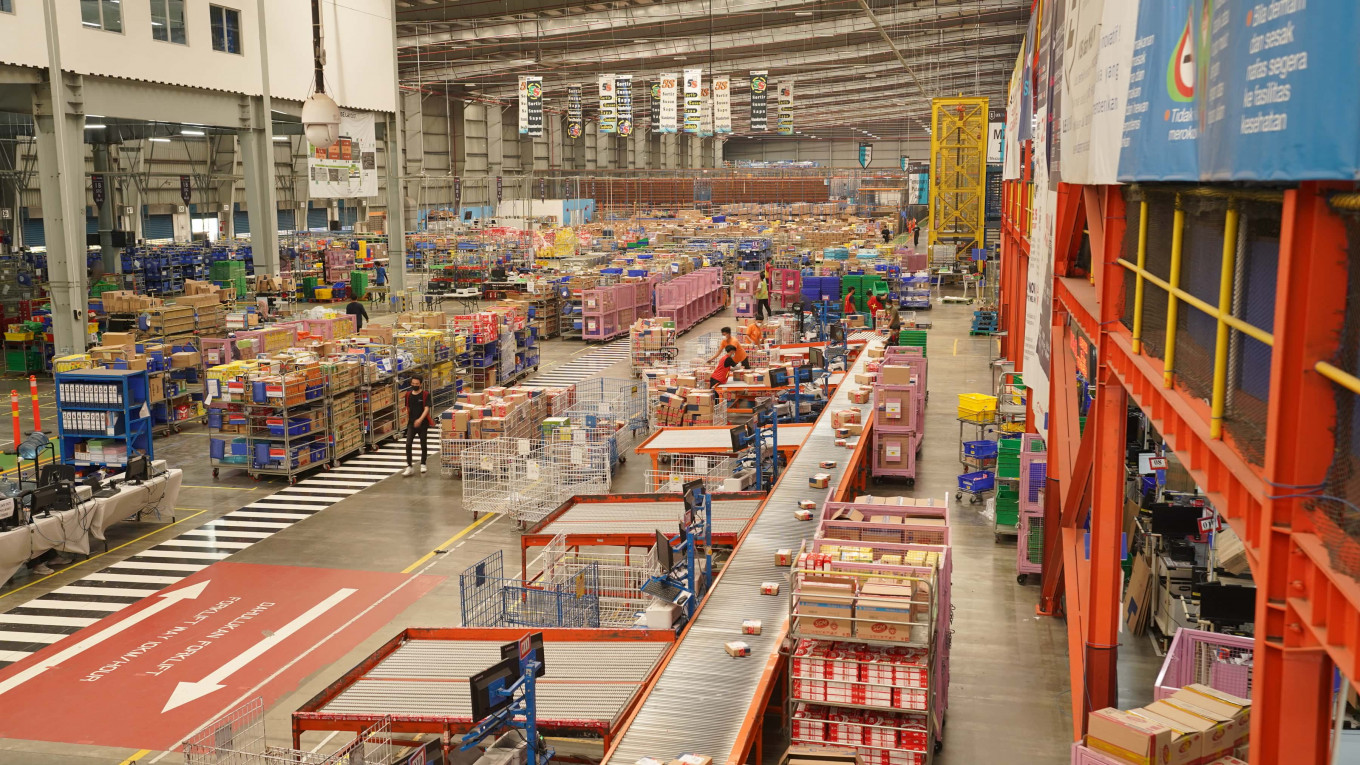Popular Reads
Top Results
Can't find what you're looking for?
View all search resultsPopular Reads
Top Results
Can't find what you're looking for?
View all search resultsCurbing e-commerce imports ‘not helpfulʼ
Experts cast doubt on the efficacy of planned new e-commerce regulations that are meant to limit foreign products on online trading platforms in hopes of protecting small local businesses.
Change text size
Gift Premium Articles
to Anyone
T
he government is nearing completion of a set of new e-commerce regulations meant to limit the number of foreign products on online trading platforms to protect the local market, particularly small and medium enterprises (SMEs).
The regulations will bar online retailers from selling cheap imported goods on e-commerce platforms by imposing a minimum freight-on-board (FOB) price of US$100 per unit.
The government argued that these goods often enter Indonesia without going through regular custom procedures and certifications from local authorities.
Typically, these imported items are ordered through e-commerce platforms and are directly delivered from overseas to local customers, which the government defined as cross border trading, as reported by Tempo.
Cooperatives and Small and Medium Enterprises Minister Teten Masduki and Trade Minister Zulkifli Hasan were among those seeking to expedite the implementation, which would be realized through a revision of the prevailing Trade Ministerial regulation No. 50/2020.
While it seems to favor local businesses, the planned regulation received mixed responses from experts and relevant industries, especially about whether it could effectively carry out its purpose.
SME industry insider, Dewi Meisari, pointed out that there might be issues with the practical effectiveness of the regulations. She highlighted how authorities face a “dilemma” in balancing the needs of consumer protection and producer support, adding complexity to the issue.
Speaking to The Jakarta Post on Tuesday, Dewi stressed the importance of clear and detailed instructions that specify which items are permitted for import to ensure the effectiveness of the law. She cautioned that if its enforcement proved to be difficult, law could become less effective.
Dewi, who is also the founder of ukmindonesia.id, pointed out that many Indonesian importers acted as sellers on e-commerce platforms, including those allowing cross-border goods.
This means that consumers may not be able to directly buy from oversees retailers, but only from importers that purchase goods in large quantities before reselling them locally, Dewi said.
A possible loophole is that these cross-border transactions could be grouped together into larger shipments, therefore meeting the minimum price cap, she said.
“For example, a keychain may cost $3, but a bulk shipment could be $120,” she elaborated.
Meanwhile, E-Commerce Logistics Association (APLE) chairman Sonny Harsono has called for the government to drop the regulation over a potential violation of World Trade Organization (WTO) principles on international trade, as quoted from Bisnis.com.
Sonny pointed out that cross border trading is the future of trade, and countries adopted the principles reciprocally. He warned proceeding with the curb may impact Indonesia’s SMEs export to other countries as well.
Institute for Development of Economics and Finance (Indef) researcher Nailul Huda refuted the argument, asserting that the regulation would not disrupt international trade, arguing the rule would only restrict some imported goods on e-commerce platforms as opposed to a complete ban.
“There are many channels to conduct export-import,” Nailul argued, “To say that export activity would be disrupted lacks a valid basis.”
Understanding the government’s motivations behind such measures, Nailul sees many ways to ensure that local small businesses can seize the opportunity given by the curb.
“For SMEs to take over, there need to be many changes from the [local] producers’ end. But at least [the regulation] will help SMEs grow in online commerce,” said Nailul.
Dewi concurred by saying, “The approach should focus on empowerment, not just protection [of SMEs].”
There should be a different strategy to bolster small business growth, she said. She proposed offering incentives and logistical support to improve supply chain efficiency in order to enable local sellers to offer products at more competitive prices.
“This way, even if Indonesian consumers prefer to shop online and are interested in imported products, they will purchase them from local sellers,” Dewi added, “At least it could bring added value to local sellers.”










